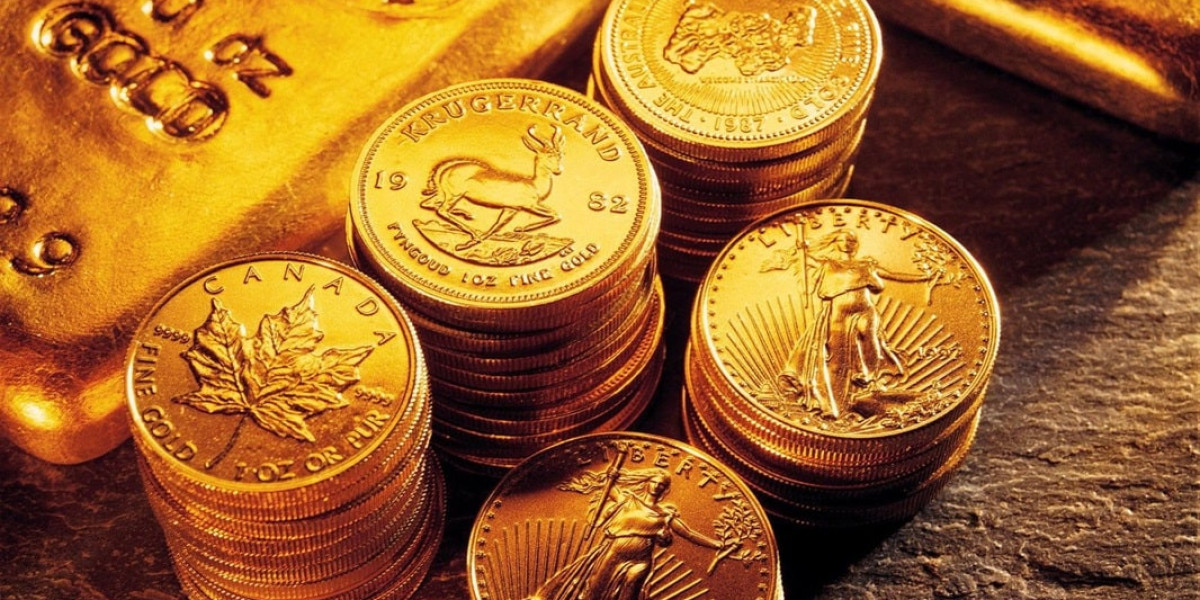When it comes to investing in gold, the two most common options are coins and jewellery. Both hold intrinsic value and are seen as reliable stores of wealth. But when it’s time to cash in, one may be significantly easier to sell than the other.
Whether you’re looking for long-term security or something you can sell quickly in an emergency, knowing the liquidity of your gold asset matters. The easier it is to sell, the faster you can access your money when needed.
Related Article: Are Gold Coins A Good Investment
Standardisation and Purity
Gold coins, especially bullion coins like the Gold Britannia or Gold Sovereign, are produced to exact standards. Their weight, purity, and specifications are internationally recognised. This standardisation makes them easier to verify and sell.
Jewellery, on the other hand, varies in purity. Most pieces are 18-carat or 22-carat gold, often mixed with other metals for strength. This means the actual gold content differs from one item to another, and it needs to be tested before resale. This adds time and can lower the price you’re offered.
Ease of Valuation
With gold coins, valuation is simple. Dealers and buyers use the current market (spot) price of gold to determine worth, and prices are adjusted based on weight and purity. Some coins also carry collector value or tax benefits, which can increase the selling price.
Jewellery is harder to value. Buyers consider factors like design, craftsmanship, brand, and wear and tear. Even a beautifully designed necklace might only fetch scrap value if the resale market isn’t strong. You’re unlikely to get back what you paid, especially if it was a retail purchase.
Market Demand and Recognition
Gold coins enjoy a strong resale market worldwide. Popular coins like Gold Britannias, Krugerrands, and Sovereigns are recognised by dealers and investors across the globe. They’re highly liquid, meaning you can often sell them on the same day.
Jewellery has a more limited resale audience. Unless it's designer or antique, it usually isn’t seen as an investment. This can make it harder to find a buyer quickly, and even then, you may face steep price reductions.
Transaction Process
Selling gold coins is typically straightforward. Reputable dealers, both online and in person, will quote you a price based on the current gold rate. Coins can often be sold instantly if you have proof of authenticity or packaging.
Jewellery sales are more involved. The item must usually be inspected and weighed. If stones or intricate designs are present, the process takes longer, and offers can vary significantly between buyers. You may need to visit multiple shops to get a fair price.
Condition and Wear
Coins are designed for storage, not daily use, which means they often stay in near-perfect condition. Many are kept in capsules or sealed packaging, preserving their quality and value.
Jewellery, however, is worn regularly. This means scratches, dents, and broken clasps are common. While these might not impact its emotional or aesthetic value, they do reduce resale price. Buyers often deduct for damage or required repairs.
Tax Advantages
In the UK, certain gold coins offer a tax edge. Gold Britannias and Sovereigns are legal tender, which means they’re exempt from Capital Gains Tax (CGT). This makes them more attractive to investors looking to protect their profits.
Jewellery doesn’t enjoy the same benefits. If you make a large gain on a valuable piece, you may be liable for CGT when you sell, depending on your personal tax situation.
Storage and Portability
Coins are compact and easy to store securely. A small tube of gold coins can represent thousands of pounds in value, making them practical to transport and liquidate.
Jewellery takes up more space and is often stored in multiple boxes. Some pieces are bulky or delicate, making them harder to move or insure. Additionally, if you need to sell just part of your holdings, coins give you better flexibility.
Emotional Attachment and Resale Hesitation
Jewellery is often given as a gift or passed down through generations. This emotional connection can make it harder to sell, even when it’s the practical choice.
Gold coins are usually bought for investment purposes. There's little emotional attachment, which makes selling easier when the time comes. You’re less likely to hesitate if the decision is purely financial.
Final Thoughts
If your goal is liquidity, simplicity, and strong resale value, gold coins clearly have the edge. They’re easier to value, faster to sell, and widely accepted across the investment world. Coins like the Gold Britannia and Sovereign are especially favoured for their purity and tax efficiency.
Jewellery, while beautiful and meaningful, often doesn’t perform as well when it comes to resale. Prices are inconsistent, and the process is more complex. It may hold sentimental value, but it’s rarely the best choice if ease of sale is your top priority.



